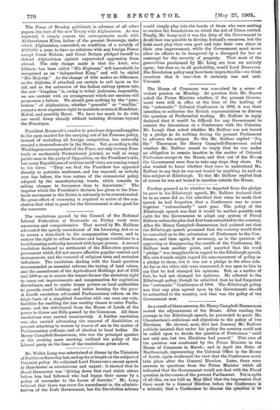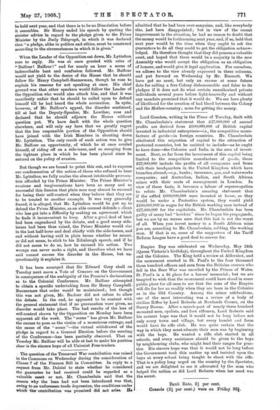As a result of these answers, Sir Henry Campbell-Bannerman moved
the adjournment of the House. After reading the passage in the Edinburgh speech, he proceeded to quote Mr. Chamberlain's criticisms and objections to the policy of two Elections. He showed, next, that last January Mr. Balfour publicly insisted that under his policy the country could not be called upon to decide the question of Preference "until not only one, but two Elections had passed." This view of the question was confirmed by the Prime Minister, in the House of Commons in March; and in April the Duke of Marlborough, representing the Colonial Office in the House of Lords, again confirmed the view that the Conference must take place after the General Election. Later, there were answers to questions from the Prime Minister Which all indicated that the Government would not deal with'the Fiscal question in the course of the present Parliament. Yet in spite- of all this, we are told on May 22nd that the impression that there must be a General 'Election before the Conference 13 a niistake, that a- Confereithe to discinis the Atiestion istir be held next year, and that there is to be no Dissolution before it assembles. Sir Henry ended his speech by quoting the sinister advice in regard to the pledge given to the Prime Minister by the Daily Telegraph, in which it was declared that "a pledge, alike in politics and ethics, must be construed wording to the circumstances in which it is given."







































 Previous page
Previous page